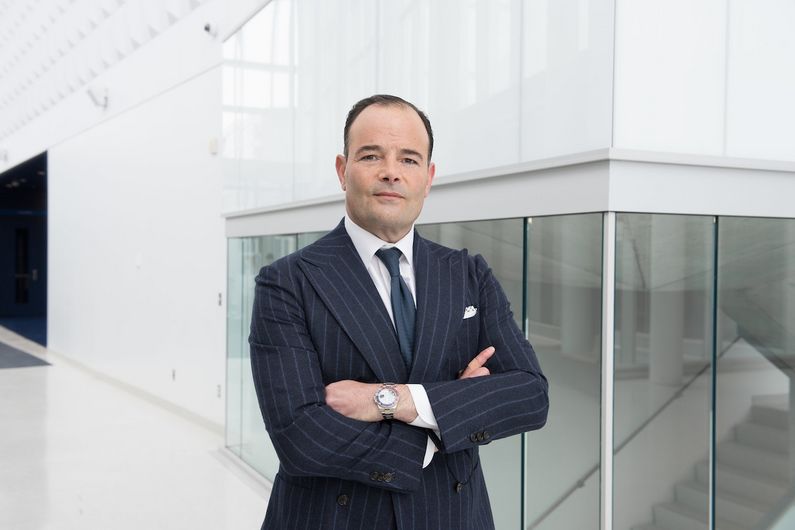University of Montreal launches the Michael D. Penner Institute on ESG
- UdeMNouvelles
06/19/2023
The Penner institute has been established thanks to Mr. Penner’s unique vision and his foundational gift. It will also include Scotiabank’s Sustainable Development Innovation Observatory.
The University of Montreal today announced the creation of the Michael D. Penner Institute on ESG, a multidisciplinary program that will support in-depth research on environmental, social and governance (ESG) issues. The new research institute was made possible by the vision and a gift from Mr. Penner, Chairman of Partners Group (Canada) and Operating Partner of Partners Group, a global private equity firm. Scotiabank made a substantial donation to support the creation of the Sustainable Development Innovation Observatory.
“The future of ESG criteria must be built on rigorous independent research conducted by researchers from different disciplines who observe and analyze the issues from all angles,” said Daniel Jutras, Rector of the University of Montreal. “The university community is well equipped to decompartmentalize and disseminate knowledge. The researchers from the University of Montreal, HEC Montréal and Polytechnique Montréal involved in the Institute have the expertise to develop it into a far-reaching interdisciplinary project.”
Rector Jutras added: “We are very grateful to Michael Penner. His concern with these important issues is in line with the priorities of our research community. In addition to providing funding, he has secured the support of the business community.”
The Michael D. Penner Institute will maintain a strategic watch and produce forecasts based on rigorous scientific analysis of ESG issues. Isabelle Martin, a professor in the School of Industrial Relations, will head the Institute, which will be one of the pillars of the Centre for Public and International Affairs. The Institute’s activities, publications and research will provide an international perspective on ESG, informed by the sharing of experiences and a comparative approach.
High-level advisory committee
The Institute’s advisory committee will be co-chaired by Charles Emond, President and CEO of CDPQ, and Rania Llewelyn, President and CEO of Laurentian Bank. Other members of the committee include Rector Jutras, Federico Pasin, Director of HEC Montréal, and Maud Cohen, President of Polytechnique Montréal.
“The purpose of the Institute is to improve our understanding of ESG issues and provide organizations with the tools to implement more effective frameworks and processes in this area,” said Michael D. Penner. “The idea grew out of my experience as Chairman of the Board of Hydro-Québec from 2014 to 2018, where we always tried to look at things from a values perspective when it came to environmental and social issues. It is also based on my current reflections as Chairman and Operating Partner at Partners Group, and Chairman of the Board of several holding companies. To be good global citizens, companies and other organizations must do more than just report good financial results; they must also contribute to the well-being of society. There is an urgent need to develop and implement a fair and effective approach to the energy transition and to achieve diversity and inclusion at all levels within companies.”
Major donation from Scotiabank
An observatory dedicated to research and training on innovations in sustainable development will be set up within the Institute, funded by a $1.5M donation from Scotiabank.
“Scotiabank is proud to contribute to the search for solutions to important issues facing society through this partnership with the University of Montreal,” said Meigan Terry, Senior Vice-President and Chief Sustainability, Social Impact and Communications Officer at Scotiabank. “Research and knowledge-sharing are essential to facilitate the transition to a carbon-neutral economy and help build a more inclusive, prosperous and sustainable world.”
“Our door is open to other players in the field who are interested in participating and we hope the Institute will serve as a catalyst for Quebec to become a world leader in ESG criteria,” said Mr. Penner.
Fruitful interdisciplinarity
The Institute’s core group of researchers (professors, students and practitioners) and coordinators with backgrounds in the social sciences, management, economics and finance will address the three dimensions of ESG—environmental, social and governance—on the basis of empirical evidence.
“We need spaces for discussion and collaboration to develop ESG research, foster exchanges between academia and practice, support skills development and inform public debate,” said Caroline Aubé, Director of Research and Transfer at HEC Montréal. “HEC Montréal is joining forces to contribute to the success of the Institute and the Observatory.”
“I am proud of Polytechnique Montréal’s role in enriching this research program on ESG by contributing its technical expertise and capacity for innovation,” said Pierre Langlois, Director of Academic Affairs and Student Experience at Polytechnique Montréal. “We are crossing disciplinary boundaries to address a common challenge because we all recognize the need to combine our perspectives and skills in order to develop systemic solutions.”
ESG investments are estimated to total over $20 trillion in assets under management, or about a quarter of all professionally managed assets worldwide. The fundamental knowledge generated at the University of Montreal will therefore be useful to businesses and other organizations, enabling them to apply ESG criteria more effectively and judiciously. Given the social import of these criteria, both businesses and society as a whole will benefit.
Media contact
-
Geneviève O'Meara
Université de Montréal
Tel: 514 709-4143 -
Émilie Novales
HEC Montréal
Tel: 438 520-3536 -
Audrey Rondeau
Polytechnique Montréal
Tel: 514 340-4711, p. 3223













